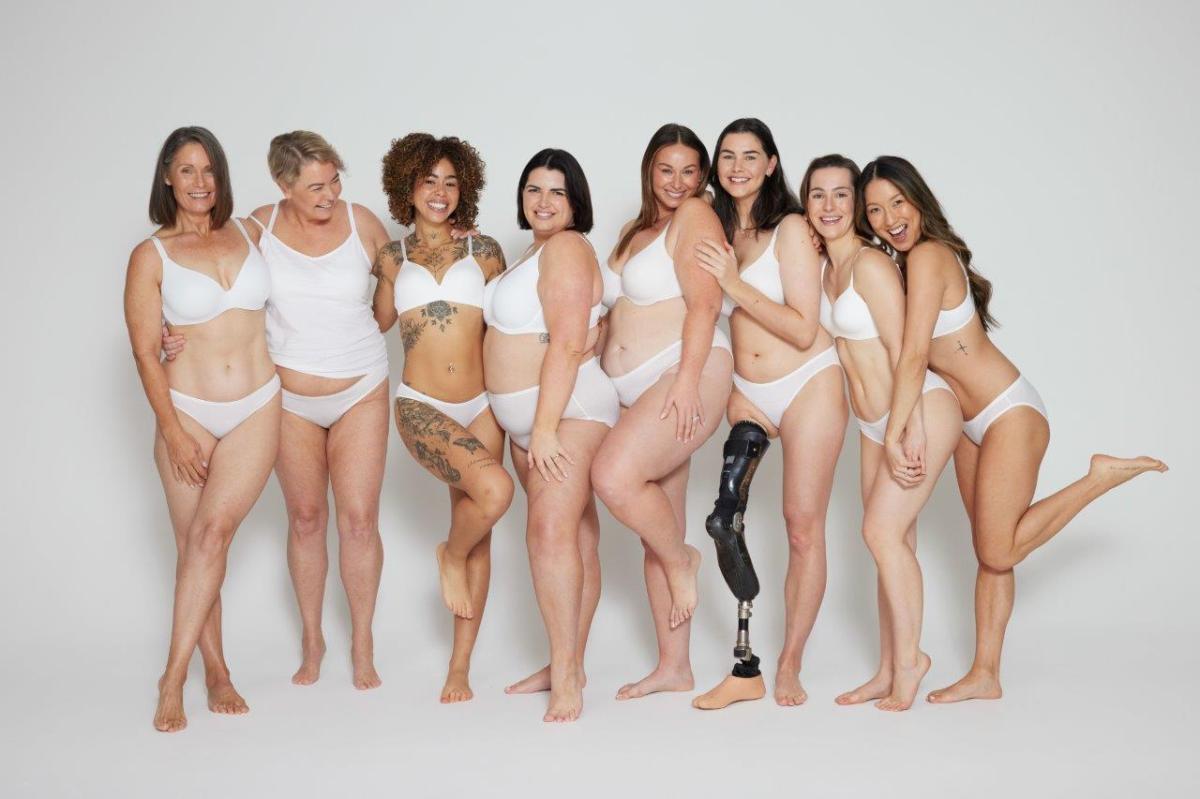Dove celebrated the 20th anniversary of its pioneering Campaign for Real Beauty by unveiling a new initiative and fresh research insights during a dynamic panel discussion hosted by Faustina ‘Fuzzy’ Agolley. The panel included Danni Rowlands, Head of Prevention from The Butterfly Foundation, Chelsea Bonner, CEO/Founder at Bella Management, Kate Jones, Content Creator and Curve Model, and Tess Giordimaina, Dove ANZ Marketing Manager. The discussion highlighted the ongoing impact of social media and generative AI on beauty standards, and Dove’s continued commitment to promoting authentic beauty.
“Thank you for joining us to celebrate Dove’s 20th anniversary of the Campaign for Real Beauty,” began Fuzzy. “Today, we launch a new campaign and share new insights from Dove’s latest research. We will discuss how social media and generative AI affect us and how we can redefine beauty standards together.”
Dove’s research, The Real State of Beauty: A Global Report, revealed troubling statistics. In 2024, 44% of Australian women would sacrifice a year of their lives to achieve societal beauty ideals, surpassing the global average of 38%. The study also found that 80% of Australian women and 78% of girls feel pressured to maintain a healthy appearance, with significant numbers feeling the need to maintain a slim figure and small waist. Additionally, two-thirds of Australian women believe contemporary beauty expectations are higher than those of previous generations.

“AI-generated content is a major threat to real beauty,” Chelsea explained. “More than 4 in 5 Australian women are exposed to harmful beauty content online. With 90% of online content predicted to be AI-generated by 2025, this rise in AI is damaging to women’s wellbeing. Half of Australian women feel pressured to alter their appearance based on online images, despite knowing they are often fake or AI-generated.”
Chelsea emphasised the harmful effects of unrealistic beauty ideals. “AI-generated content worsens the issue by bombarding us with unattainable images. Dove’s commitment to real beauty, refusing to use AI-generated imitation humans in advertising and promoting transparency with the Real Beauty Prompt Guidelines, are critical steps in protecting and celebrating authentic beauty.”
She also highlighted the impact AI had on other industries and called on the Australian government to take action. “Generative AI programs use stolen images and content from real people worldwide to create fake humans for commercial gain, taking jobs from real talent and perpetuating biased data. This issue is profound. Each job on a paid set creates multiple other jobs, from cameramen to makeup artists. By using AI, we strip away these opportunities. We need regulations to protect real human jobs and ensure ethical practices.”
Danni stressed that businesses also needed to take action and commit to being ethical. “Almost one in two Australian women feel pressured to alter their appearance because of what they see online. Women have always faced pressure to conform to beauty standards, and AI adds another layer to this issue. We need to ensure young people are savvy and businesses are committed to ethical practices.”
Dr Phillippa Diedrichs, Research Psychologist at the Centre of Appearance Research at the University of West England, noted the dual impact of AI. “AI has the potential to foster creativity, but it also risks perpetuating narrow beauty standards. While some find creating AI versions of themselves empowering, many believe it negatively impacts their self-image.”
To address these challenges, Dove announced its Real Beauty Prompt Guidelines, providing guidance on creating representative images using generative AI programs. “Dove has always stood for real beauty,” said Tess. “Our commitment to never using AI in our ads underscores our dedication to authenticity. By introducing the Real Beauty Prompt Guidelines, we aim to foster a more inclusive and transparent approach to beauty in the digital age.”
Dove’s new campaign, The Code, reflects the impact of AI on beauty and the progress made in changing beauty standards over the past 20 years. As part of its commitment, Dove pledged to accelerate efforts to champion transparency and diversity, aiming to shatter beauty stereotypes in new and emerging media.
Since 2004, Dove has challenged society, media, and the beauty industry to change its representation of women and be transparent about digital distortion. Despite progress, Dove’s new research indicates that much work remains. The event concluded with a call to action. “We need women and allies to fill the data set with information about women’s rights and health,” Chelsea said. “We must change the narrative and ensure that AI is used ethically and responsibly.”
Images from the event below:









Read the current issue of our digital magazine below:
- For more news and updates, subscribe to our weekly newsletter
- Follow us on Instagram
- Like us on Facebook
- Connect with us on LinkedIn

